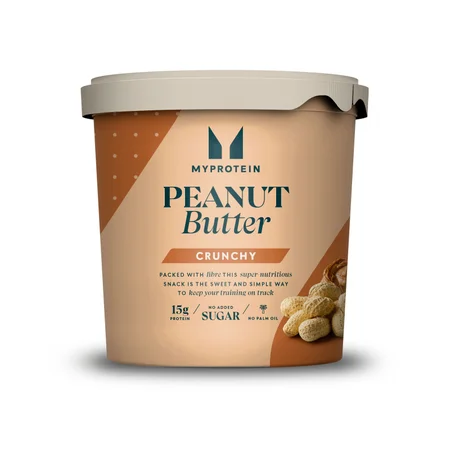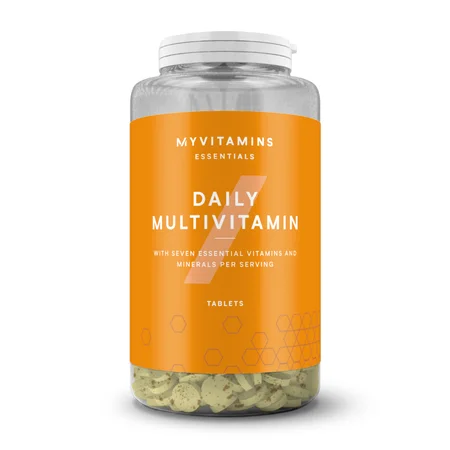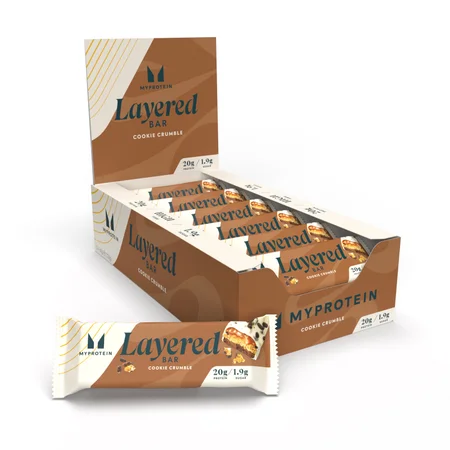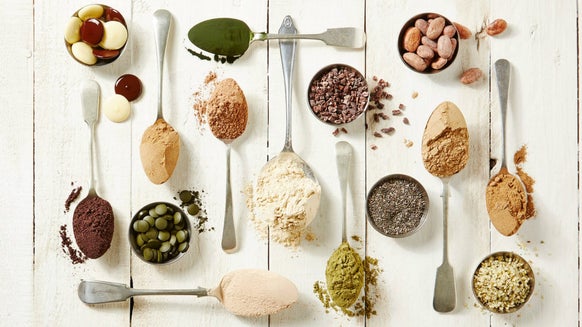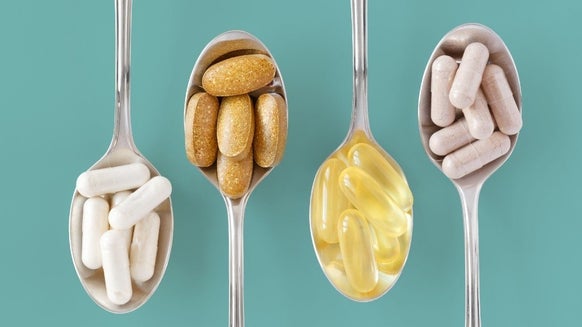10 Of The Best Nutrient-Dense Tinned Foods
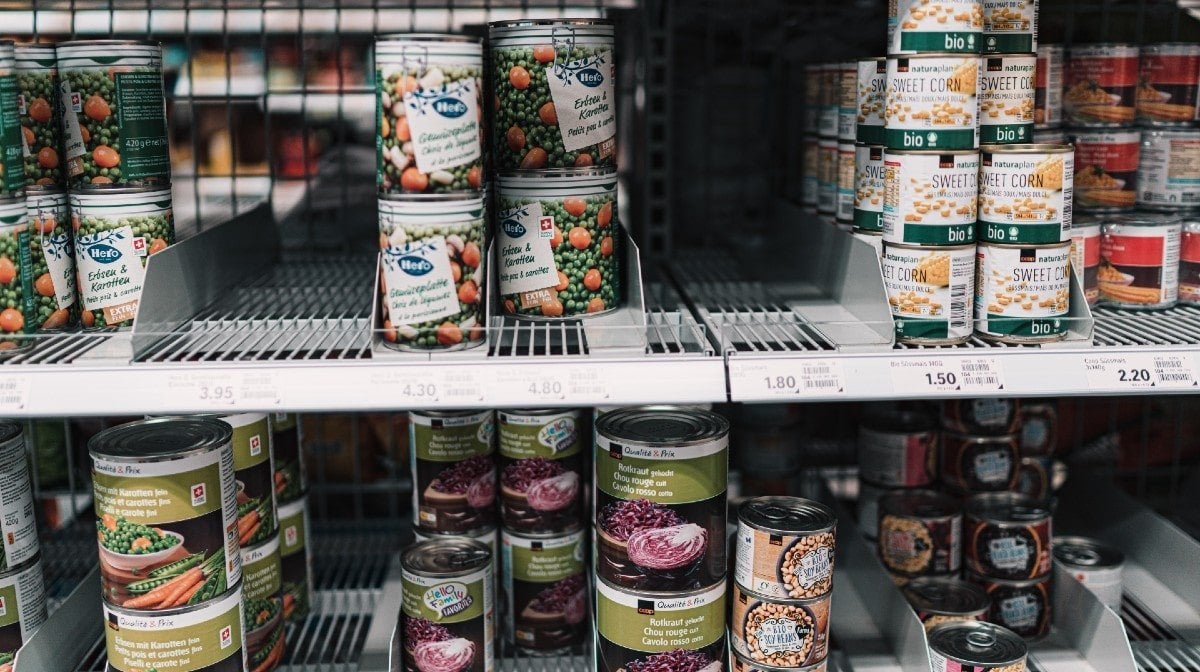
If you've been "pinged" in the recent "pingdemic" and told to self-isolate, you might be struggling to get a food shop in. Instead of staring gloomily into your cupboards, see a wealth of opportunity in that tin of beans you bought in March 2020.
If you've not been "pinged", you might still notice a few gaps on the shelves as many of those who work in key parts of the food supply chain have been told to self-isolate, resulting in shortages of some products. But don't panic yet, there's a solution on the horizon as these workers have been allowed to continue working with daily testing, only self-isolating with a positive test, but there could be some shortages in the meantime.6c
So whether you're self-isolating and unable to get to the supermarket for a few days, or you just can't find what you need in the supermarket, we're here to reassure you that tinned foods can be just as delicious and nutritious.

Can Tinned Foods be Healthy?
While many are quick to criticise these tinned goods, canning can actually have a protective effect on the nutrients within foods. In fact, some are comparatively similar to their fresh counterparts even after a few months of storage.1,2 Studies have also shown that the canning process can actually increase the amounts of healthy compounds within a stored food.3
If that wasn’t evidence enough that you shouldn’t turn your nose up at canned foods, research has shown people who ate six or more canned items per week had higher intakes of 17 essential nutrients, compared with those who ate two or fewer canned items per week.4
Whilst canned foods may not be as “bad” as you’ve been led to believe, there’s obviously still a need to select options conducive to your goals and optimising your health and performance.
Here’s the top ten most-nutrient dense tinned foods you can stock your cupboards with…
1. Tuna
Canned tuna is a fantastic source of essential nutrients, such as omega-3 polyunsaturated fatty acids (PUFAs), selenium, iron, and Vitamin D. It’s also a great source of high-quality protein, providing around 30g per 100g portion.
On top of that, it’s extremely calorie efficient. A 100g portion will land you somewhere between 110 – 130kcals. Most tuna species have approximately 2 grams of fat per 100g portion and minimal amounts of both cholesterol and sodium.
2. Baked Beans
Baked beans are the epitome of most of our childhoods, but would it surprise you to know that these are absolutely jammed pack full of a whole host of health-benefitting nutrients and minerals?
They’re an incredible source of plant-based protein, fibre, and other slow-digesting carbohydrates (which will help keep hunger at bay). They’re also rich in certain B vitamins, iron, magnesium, zinc, selenium and copper.
3. Chopped tomatoes
If you haven’t got this in your cupboard, then you’ve probably never cooked a square meal in your life. Here’s a few tips on how to use it; they’re a great addition to curries and soups, to bulk out stews and hash mixes or even to create homemade sauces.
They’re also incredibly calorie friendly and packed full of health-promoting vitamins. Canned tomatoes are arguably greater than fresh when you consider the canning process actually improves the bioavailability of certain nutrients as well as antioxidants.5 That one lonely tin won’t be left to lie for too much longer after reading this.
4. Mackerel
Mackerel has much of the same properties as tuna, however is much richer in omega-3 PUFAs. In fact, a 100g portion of mackerel will land you around 2g of omega-3 PUFAs, which is well over the daily recommended intake.
Mackerel is also an important source of protein and B vitamins, particularly vitamin B12. A mere 85g serving will provide close to 700 percent of the recommended daily amount of vitamin B12. Not a bad catch!
5. Soups
Soups are wonderful — they give you that “feel good” factor when it’s a bit wet and miserable outside, but they’re also packed with goodness. Most will provide at least one, if not two to three portions of your daily fruit and veg intake, usually in a more calorie- and time-efficient manner.
It’s recommended that you keep an eye on the sodium when checking labels, however most brands do offer a low sodium alternative option.
6. Canned fruit (in juice)
As we highlighted earlier, canned fruit can be just as nutritionally dense as its fresh counterparts and lasts much, much longer. Whilst there may be some loss of water-soluble vitamins during the canning process, the preservation of these over the long-term evens out.
Fresh may be slightly superior relative to tinned, but only in the context of consuming fairly immediately after purchase. Fresh also tends to be much more expensive and this is an important consideration to make.
Additionally, fruits tend to provide levels of those water-soluble vitamins far in excess of our daily requirements, suggesting that some loss may not actually be all that important anyway.
7. Canned vegetables
Canned veggies fall in line with canned fruit. Nutrients are preserved for longer and bioavailability of certain nutrients is actually enhanced thanks to the canning process.
Again, they do also tend to be cheaper than the fresh alternatives, so stocking up the cupboard with a few varieties of canned veggies is a great move, both for your health and your bank balance.
8. Legumes, pulses, and beans
An inexpensive source of plant-based protein packed with vitamins, complex carbohydrates, and fibre. These little health gems are a must have for any kitchen pantry cupboard.
Their use is as diverse as their health benefits — throw them into a whole host of dishes to up the nutrient density and munch along happily knowing that they also contribute to your recommended intake of five portions of fruit and veggies.
9. Crab
Something a bit different — who here has thought to add crab to their pantry?
Okay, well how about if you knew that crab was more calorie efficient than tuna, richer in protein, and arguably more nutrient and mineral dense?
Still not convinced? Well, what if you discovered that it was also just as good a source of omega-3 PUFAs than tuna? And, unlike many other marine food sources, a very low risk source of mercury too.
It’s also really, really tasty, which should be the determining factor when it comes to convincing you to buy a can. Throw it into a whole host of dishes (crab tacos anyone?) and pat yourself on the back for taking the risk and trying it out — you won’t regret it.
10. Lentils
Last but not least, lentils. Lentils are one of the richer sources of plant-based protein and a great alternative to animal sources (which may be higher in fat and or sodium). Being part of the legume family, they’re also a great source of fibre and other complex carbohydrates. Loaded with B vitamins, magnesium, iron and zinc, lentils are a wonderfully versatile addition to your cupboards and incredibly affordable too

Take Home Message
Just in case you are isolating and can't get to the shops, and to keep you covered even if some products are out of stock for a little while, you can rest easy that you'll hit your macros on tinned foods. There’s no need to miss out on flavour, or eat the same old foods with a cupboard full of tins. So, get creative.

